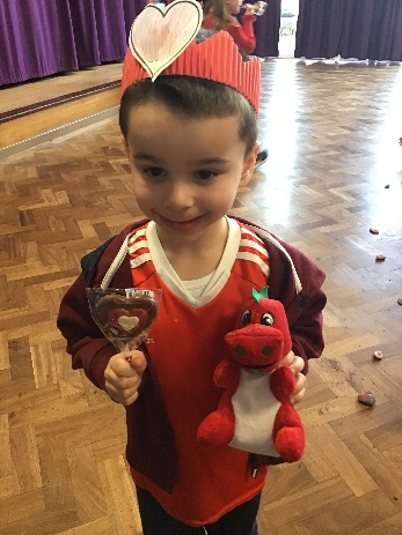Curriculum
Ein Hysgol
The curriculum must be “broad, balanced, relevant and differentiated”. In both its content and delivery the curriculum should reject discrimination against pupils of gender, race, religion and colour. The Governing Body is dedicated to a Policy of Equal Opportunities for all.
Holy Family School endeavours to be a community that is inclusive of each individual regardless of ability and background.
We promote positive approaches to difference and foster respect for people of all cultural backgrounds. The school is opposed to all forms of prejudice and discrimination, whether based on gender or race. We recognise that our school community reflects Welsh and British society and is made up of people from many different racial, cultural, religious and linguistic backgrounds.
From September 1st 2022 in planning the school is referencing the Curriculum for Wales for all aspects of the curriculum. A full presentation for Curriculum for Wales is on our school website.
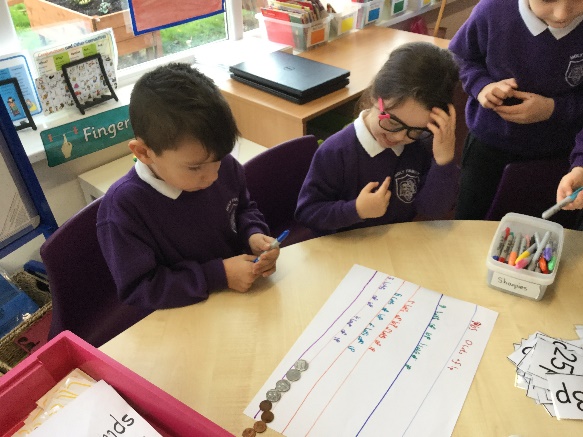
The 4 Core purposes lead the curriculum planning for the children.
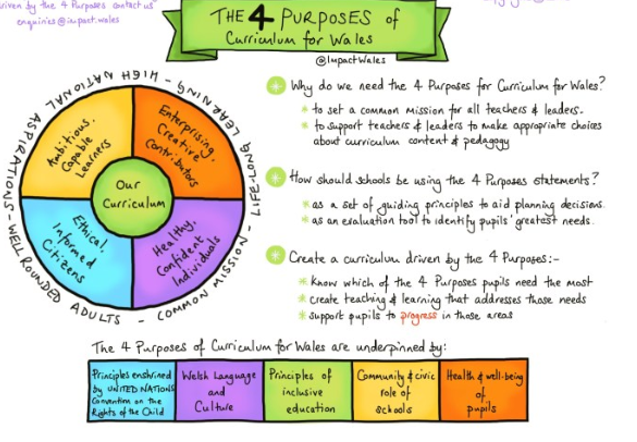
Ambitious, capable learners who:
- set themselves high standards and seek and enjoy challenge
- are building up a body of knowledge and have the skills to connect and apply that knowledge in different contexts
- are questioning and enjoy solving problems
- can communicate effectively in different forms and settings, using both Welsh and English
- can explain the ideas and concepts they are learning about
- can use number effectively in different contexts
- understand how to interpret data and apply mathematical concepts
- use digital technologies creatively to communicate, find and analyse information
- undertake research and evaluate critically what they find
and are ready to learn throughout their lives.
Enterprising, creative contributors who:
- connect and apply their knowledge and skills to create ideas and products
- think creatively to reframe and solve problems
- identify and grasp opportunities
- take measured risks
- lead and play different roles in teams effectively and responsibly
- express ideas and emotions through different media
- give of their energy and skills so that other people will benefit
and are ready to play a full part in life and work.
Ethical, informed citizens who:
- find, evaluate and use evidence in forming views
- engage with contemporary issues based upon their knowledge and values
- understand and exercise their human and democratic responsibilities and rights
- understand and consider the impact of their actions when making choices and acting
- are knowledgeable about their culture, community, society and the world, now and in the past
- respect the needs and rights of others, as a member of a diverse society
- show their commitment to the sustainability of the planet
and are ready to be citizens of Wales and the world.
Healthy, confident individuals who:
- have secure values and are establishing their spiritual and ethical beliefs
- are building their mental and emotional well-being by developing confidence, resilience and empathy
- apply knowledge about the impact of diet and exercise on physical and mental health in their daily lives
- know how to find the information and support to keep safe and well
- take part in physical activity
- take measured decisions about lifestyle and manage risk
- have the confidence to participate in performance
- form positive relationships based upon trust and mutual respect
- face and overcome challenge
- have the skills and knowledge to manage everyday life as independently as they can.
and are ready to lead fulfilling lives as valued members of society
The 4 Core purposes lead the curriculum planning for the children. The children will learn through the following Areas of Learning Experience (AOLE):
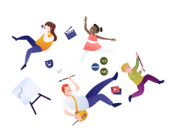
Expressive Arts, spans five disciplines: art, drama, film and digital media and music. The dynamic nature of this AOLE can engage, motivate and encourage learners to develop their creative, artistic and performance skills to the full.
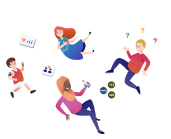
Health and Wellbeing, provides a holistic structure for understanding health and wellbeing. The fundamental components are physical health and development, mental health, and emotional and social wellbeing. It will support learners to understand and appreciate how the different components of health and wellbeing are important to successful learning. A whole school approach to this AOLE enables health and wellbeing to permeate all aspects of school life.
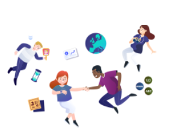
Humanities,this encompasses geography, history, religion, values and ethics, business studies and social studies. This AOLE is central to our children becoming ethical, informed, citizens of Wales. It will also help them discover their heritage and develop a sense of place and cynefin (belonging)
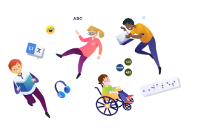
Languages, Literacy and Communication, addresses fundamental aspects of human communication. It aims to support learning across the whole curriculum and to enable children to gain knowledge and skills in Welsh, English, and an international language as well as literature. At Holy Family the children will experience French as their third language.
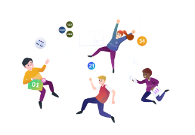
Mathematics and Numeracy, progression in this AOLE involves the development of five connected and interdependent proficiencies which have no hierarchy:
- Conceptual understanding
- Communication using symbols
- Fluency
- Logical reasoning
- Strategic competence
Maths is taught as discrete lessons, and then used by the children across the curriculum through authentic experiential learning
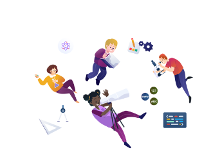
Science and Technology, draws on the disciplines of biology, chemistry, computer science, design and technology and physics to enhance learners knowledge and understanding of the world.
The Literacy, Numeracy and Digital Frameworks are also developed within each area of learning in a progressive manner.
Relationships and Sexuality Education is developed through our Health and Wellbeing AOLE and Religious Education. We use 3 schemes to ensure the children have wide experiences in this area- Jigsaw, Fertile Heart (Archdiocese of Cardiff recommended scheme) Life to the Full (Archdiocese of Cardiff recommended scheme), examples below:
Life to the Full is much more than a series of lessons. It is an entire platform of creative resources that will engage, inform and inspire our children and, indeed, you as parents. This includes interactive video content, story-based activities, employing a wide range of teaching tools, original worship music and an accompanying programme of classroom prayers.
The programme adopts a spiral curriculum approach so that as your child goes through the programme year-after-year, the learning will develop and grow, with each stage building on the last.
Module One: Created and Loved by God
Module One: Created and Loved by God explores the individual. Rooted in the teaching that we are made in the image and likeness of God, it helps children to develop an understanding of the importance of valuing themselves as the basis for personal relationships.
In these sessions, we explore:
Foundation Phase – that we are uniquely made by a loving God, that we have differences and similarities (including physical differences between boys and girls), key information about staying physically healthy, understanding feelings and emotions, including strong feelings such as anger, and the cycle of life from birth to old age.
Lower Key Stage Two – understanding differences, respecting our bodies, puberty and changing bodies, strategies to support emotional wellbeing including practising thankfulness, and the development of pupils understanding of life before birth
Upper Key Stage Two – appreciation of physical and emotional differences, a more complex understanding of physical changes in girl and boys bodies, body image, strong emotional feelings, the impact of the Internet and social media on emotional well-being, a more nuanced and scientific understanding of life in the womb and menstruation.
Module Two: Created to Love Others
Module Two: Created to Love Others explores the individual’s relationship with others. Building on the understanding that we have been created out of love and for love, this unit explores how we take this calling into our family, friendships and relationships, and teaches strategies for developing heathy relationships and keeping safe.
This religious understanding is then applied to real-world situations relevant to the age and stage of the children:
Foundation Phase – In the Unit ‘Personal Relationships’, children are taught to identify the Special People in their lives who they love and can trust, how to cope with various social situations and dilemmas, and the importance of saying sorry and forgiveness within relationships. In the Unit ‘Keeping Safe’, we explore the risks of being online by incorporating the ‘Smartie the Penguin’ resources from Childnet, the difference between good and bad secrets, and teaching on physical boundaries (incorporating the PANTS resource the NSPCC).
Lower Key Stage Two – The sessions here help children to develop a more complex appreciation of different family structures and there are activities and strategies to help them develop healthy relationships with family and friends; here, they are also taught simplified Cognitive Behavioral Therapy (CBT) techniques for managing thoughts, feelings and actions.
Once again, for the ‘Keeping Safe’ unit, there are some excellent NSPCC resources, as well as teaching on bullying and abuse through a series of animated stories.
Upper Key Stage Two – The sessions for UKS2 in the ‘Personal Relationships’ module aim to equip children with strategies for more complex experiences of relationships and conflict; this includes sessions that help children to identify and understand how to respond to spoken and unspoken pressure, the concept of consent and some practical demonstrations of this, and further teaching on how our thoughts and feelings have an impact on how we act.
Module Three: Created to Live in Community
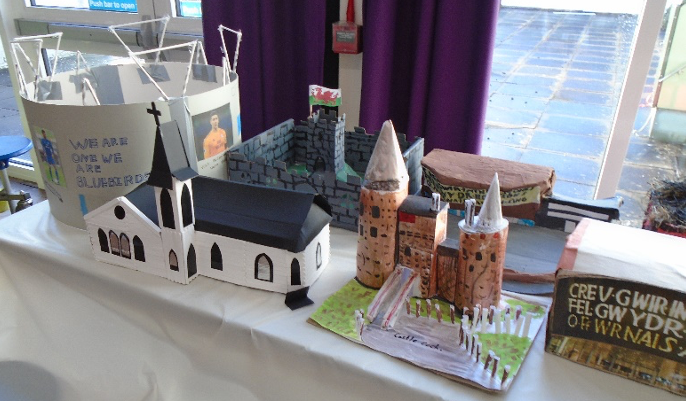
Finally, Module Three: Created to Live in Community explores the individual’s relationship with the wider world. Here we explore how human beings are relational by nature and are called to love others in the wider community through service, through dialogue and through working for the Common Good.
In the first Unit, Religious Understanding, the story sessions help children to develop a concept of the Trinity.
In subsequent sessions, we apply this religious understanding to real-world situations, such as the community we live in, and through exploring the work of charities which work for the Common Good.
ICT equipment; the school has many high quality devices ensuring a ratio of almost 1:1 devices for each pupil. We have Laptops, Chromebooks and I Pads.
Holy Family School is an English Medium school; we are proud to be Welsh and regularly celebrate our Welsh heritage. We use incidental Welsh around the school; pupils and staff use Welsh phrases during lessons and at Playtimes.
Educational visits are planned to ensure that the children have first hand experiences of their Welsh heritage. Contexts for Learning are planned to include Welsh history, geography art and music. On or around St. David’s Day we celebrate with an Eisteddfod.
